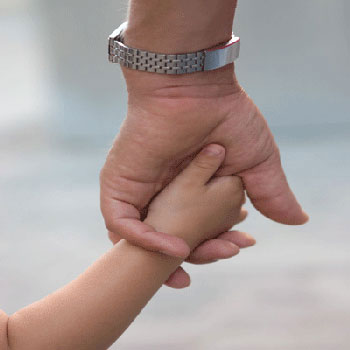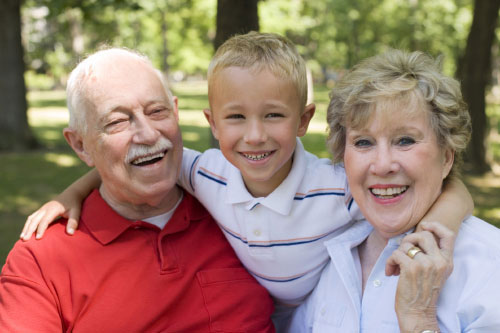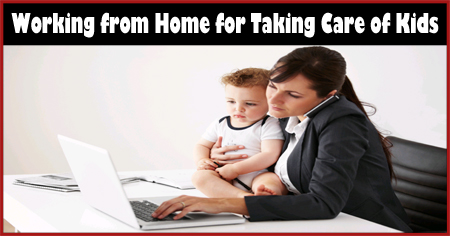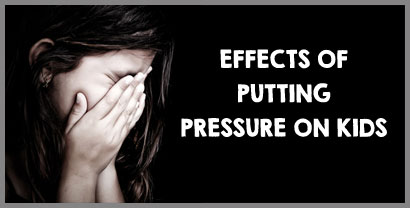Childrens emotions change in every minute. Handling such emotions is a skill. Read on to find out more about how your personality affects that of your children, and what you can do to bring out the best in them.How do you react to your childs anger and moodiness? In this articleThe neutral parent Anything goesLost opportunities to grow closer to the childThe empathizing parent coach and guideThe how to guideDaily ConversationRelationship-buildingConsequencesSelf-expression and high-level thinkingDifferencesThe neutral parent: "Anything goes" Have you ever told your child, "I love you. Never mind if you did poorly in a subject, or never mind if you failed this time. You now know you need to work harder the next time." Naturally you express concern for your childs hurt feelings. So you let them know you love them unconditionally. You may also allow them to cry and express their anger or hurt, its healthier than keeping them bottled up. Do you also worry that setting limits and disciplining your children may make them feel that your love is dependent on their good behaviour? How often do you end up "yelling and screaming" along with them? Sometimes letting things run their course does not always produce the best results. Lost opportunities to grow closer to the child Whats missing from this parenting style? Its not acceptance, since you are very accepting of their emotions and their expressing them. Its not good intentions, since you accept the effects of an emotionally expressive child, at least until your patience runs out. Something else, some crucial additional element, seems to be missing. In addition to being allowed to freely experience their emotions, children need to be encouraged to understand them as well. Without this, children dont learn how to regulate their emotions and often find it difficult to calm down after a tantrum. They may find it difficult to concentrate on learning new skills, often getting frustrated and giving up. They may find it harder to make and keep friends. The empathizing parent: coach and guide For some, this style comes naturally. For others, it means a few changes starting with a personal attitude about emotions and how to deal with them. The difficult part in empathising is that it involves teaching children what emotions are and how emotions work, often in the midst of an emotionally charged event. When emotions are running high, a parent needs to be able to help the child deal with it before they become bigger problems. The "how to" guide Value your childs feelings, but not all behaviors, because children need to learn how to handle their emotions as well. Be aware of the childs emotions. It becomes easier with practice. Recognize emotional times as "magic moments" and as opportunities for intimacy and teaching. Listen empathetically and validate the childs feelings Help the child verbally label emotions Setting limits while helping the child problem-solve Avoid agreeing with the "enemy" when a child feels mistreated Daily Conversation Engage your child in conversation at least once a day that is non-pejorative, and that allows you to learn something about whats important to him and what is going on in his life. Relationship-building Separate disciplinary discussions from relationship-building discussions. Emotions , Consequences Set up clear consequences for infractions of rules, however, make sure that the consequences begin lightly and increase only as same behaviors are repeated. Self-expression and high-level thinking Allow and encourage discussion of your childs feelings about rules and standards, and allow for disagreement. You have the final word, but understanding your childs point of view and giving him the chance to verbalize it will increase his thinking capacities as well as encourage the successful handling of negative emotions. Differences Acknowledge individual differences. Approach your child always with respect for his individual temperament, especially when different from yours. Remember that ultimately your child will internalize who you are. If you deal with your child from a position of both love and strength, then thats what he or she will take in and own. Personality Plus - I
Children's emotions change in every minute. Handling such emotions is a skill. Read on to find out more about how your personality affects that of your children, and what you can do to bring out the best in them.How do you react to your child's anger and moodiness?
The neutral parent: "Anything goes"
Have you ever told your child, "I love you. Never mind if you did poorly in a subject, or never mind if you failed this time. You now know you need to work harder the next time."
Naturally you express concern for your child's hurt feelings. So you let them know you love them unconditionally. You may also allow them to cry and express their anger or hurt, it's healthier than keeping them bottled up.
Do you also worry that setting limits and disciplining your children may make them feel that your love is dependent on their good behaviour? How often do you end up "yelling and screaming" along with them?
Sometimes letting things run their course does not always produce the best results.
Lost opportunities to grow closer to the child
What's missing from this parenting style? It's not acceptance, since you are very accepting of their emotions and their expressing them. It's not good intentions, since you accept the effects of an emotionally expressive child, at least until your patience runs out. Something else, some crucial additional element, seems to be missing.
In addition to being allowed to freely experience their emotions, children need to be encouraged to understand them as well. Without this, children don't learn how to regulate their emotions and often find it difficult to calm down after a tantrum. They may find it difficult to concentrate on learning new skills, often getting frustrated and giving up. They may find it harder to make and keep friends.
The empathizing parent: coach and guide
For some, this style comes naturally. For others, it means a few changes starting with a personal attitude about emotions and how to deal with them.
The difficult part in empathising is that it involves teaching children what emotions are and how emotions work, often in the midst of an emotionally charged event. When emotions are running high, a parent needs to be able to help the child deal with it before they become bigger problems.
The "how to" guide
Value your child's feelings, but not all behaviors, because children need to learn how to handle their emotions as well.
Be aware of the child's emotions. It becomes easier with practice.
Recognize emotional times as "magic moments" and as opportunities for intimacy and teaching.
Listen empathetically and validate the child's feelings
Help the child verbally label emotions
Setting limits while helping the child problem-solve
Avoid agreeing with the "enemy" when a child feels mistreated
Daily Conversation
Engage your child in conversation at least once a day that is non-pejorative, and that allows you to learn something about what's important to him and what is going on in his life.
Relationship-building
Separate disciplinary discussions from relationship-building discussions.
Emotions ,
Consequences Set up clear consequences for infractions of rules, however, make sure that the consequences begin lightly and increase only as same behaviors are repeated.
Self-expression and high-level thinking
Allow and encourage discussion of your child's feelings about rules and standards, and allow for disagreement. You have the final word, but understanding your child's point of view and giving him the chance to verbalize it will increase his thinking capacities as well as encourage the successful handling of negative emotions.
Differences
Acknowledge individual differences. Approach your child always with respect for his individual temperament, especially when different from yours.
Remember that ultimately your child will internalize who you are. If you deal with your child from a position of both love and strength, then that's what he or she will take in and own.
Personality Plus - I
































